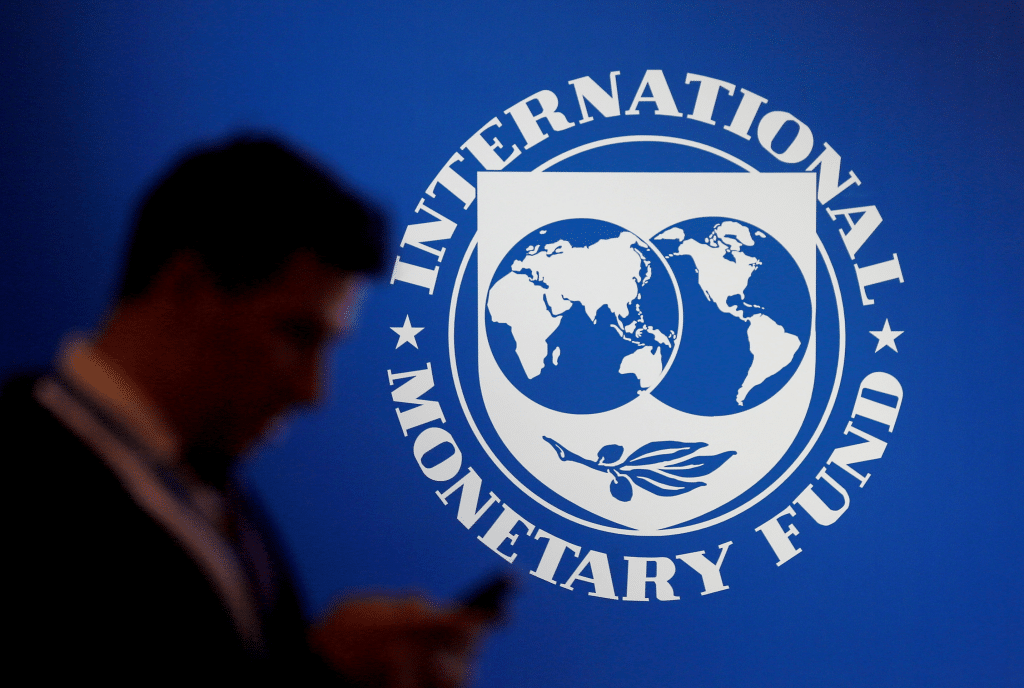In today’s interconnected world, Global Finance Impact plays a pivotal role in shaping economic stability across the globe. From influencing the growth prospects of emerging markets to determining the fiscal policies of advanced economies, the global financial system impacts all aspects of national economies. Financial flows between countries, the movement of capital, commodities, and even political decisions, all serve as conduits that facilitate or undermine economic stability.
As financial markets become more integrated and countries experience closer economic ties, the effects of global finance on economic stability have only deepened. From the global financial crisis of 2008 to the ongoing trade tensions and currency fluctuations, the role of global finance in determining national economic health is undeniable. The ripple effects of decisions made in financial markets often lead to cascading impacts on inflation, employment, and the broader economic fabric of nations.
This article explores how global finance shapes economic stability across the world. It also discusses the risks and benefits of such interconnectedness and its long-term effects on financial and economic policies.
Key Takeaways
- Global finance facilitates capital flows: It helps countries secure investment, manage debt, and support infrastructure projects. However, excessive dependence on foreign capital can create vulnerability.
- Currency and exchange rate fluctuations matter: Changes in the value of a nation’s currency affect its trade balance, inflation, and overall economic stability.
- Global financial crises have widespread effects: A financial crisis in one country can trigger recessions, unemployment, and instability in others.
- Monetary policies influence global stability: Central bank decisions regarding interest rates and liquidity have far-reaching impacts on capital flows and investment trends worldwide.
- Geopolitical events can disrupt financial markets: Wars, trade disputes, and political tensions create uncertainty and volatility, affecting economic stability in both developed and emerging markets.
What is Global Finance?

Global finance refers to the international system of financial markets, institutions, regulations, and transactions that connect countries and economies. It includes a wide range of activities such as the movement of capital, cross-border investments, and the management of foreign exchange and global trade.
The global finance system encompasses several components:
- International Financial Markets: These are platforms where investors and institutions engage in the buying and selling of assets, including stocks, bonds, and currencies.
- Multinational Corporations (MNCs): Companies operating in multiple countries contribute to global finance through investments, market operations, and global supply chains.
- Central Banks and International Institutions: Institutions like the International Monetary Fund (IMF), World Bank, and central banks of major economies regulate and influence the global financial system through policy frameworks, financial assistance, and currency stabilization.
- Trade Networks and Commodity Markets: International trade and the global movement of commodities like oil, gold, and agricultural products are integral to the global financial system.
- Technological Advancements: Innovations such as blockchain, cryptocurrencies, and digital currencies are transforming how money flows and how financial transactions occur internationally.
These elements work together to create a dynamic and interconnected system where the actions of one nation or institution can influence the entire global economy. Understanding this interconnectedness is essential to understanding how global finance impacts economic stability.
How Global Finance Impacts Economic Stability
Economic stability is often measured in terms of growth, inflation, unemployment, and the balance of payments. Global finance influences these key indicators in several ways, both directly and indirectly.
Capital Flows and+ Investment Decisions
Capital flows, the movement of money across borders for investment, have a significant impact on the economic stability of nations. Countries that attract substantial foreign direct investment (FDI) or foreign portfolio investment (FPI) tend to experience economic growth, job creation, and infrastructure development. However, these inflows can also lead to volatility. For instance, an abrupt withdrawal of foreign capital can lead to a sharp depreciation of the currency, economic contraction, and even recession.
Foreign investment, especially in developing economies, can provide much-needed capital for businesses, infrastructure projects, and public services. However, excessive reliance on foreign capital can expose nations to external shocks, particularly in times of global financial instability. The 1997 Asian Financial Crisis and the 2008 Global Financial Crisis are prime examples of how sudden capital outflows can destabilize entire economies.
Currency and Exchange Rate Volatility
Currency fluctuations are a common byproduct of the global financial system and can have wide-reaching effects on economic stability. Currencies are subject to fluctuations based on global supply and demand, central bank policies, interest rate differentials, and global geopolitical events. For instance, a sharp depreciation of a country’s currency can lead to inflation, higher costs for imports, and even reduce consumer confidence. Conversely, a strong currency can affect export competitiveness and lead to a trade imbalance.
Central banks often intervene in the currency markets to stabilize their national currency. However, the global financial markets are often unpredictable, and the influence of large institutional investors, hedge funds, and multinational corporations can lead to significant volatility, as seen during the devaluation of the Argentine Peso or the Greek Debt Crisis.
Trade Agreements and Global Supply Chains
Global finance is also deeply tied to international trade and the flow of goods and services. Trade agreements, tariffs, and market access all influence a nation’s economic health. Global supply chains, which depend on financial markets for credit and investment, are the backbone of many industries, including manufacturing, technology, and agriculture.
A disruption in trade, whether through tariffs, sanctions, or geopolitical instability, can have serious consequences for economic stability. Countries that are heavily reliant on exports can experience severe economic downturns if global demand for their products drops or if international trade routes are disrupted. The COVID-19 pandemic exposed vulnerabilities in global supply chains, highlighting how changes in global finance could lead to inflation and economic recessions in many nations.
Financial Crises and Their Global Impact
One of the most direct ways that global finance impacts economic stability is through financial crises. These crises, which can be triggered by reckless lending, speculation, or regulatory failures, often spread across national borders, affecting global trade, investment, and job markets. The 2008 Global Financial Crisis is a key example of how a crisis that began in the U.S. subprime mortgage market affected economies worldwide, leading to recessions, mass unemployment, and political instability in many countries.
Financial crises often lead to governments taking drastic measures to stabilize their economies, including implementing austerity measures, nationalizing banks, or providing stimulus packages. These actions can either stabilize the economy or exacerbate economic instability, depending on how effectively they are executed.
Global Monetary Policies
Monetary policies implemented by central banks in major economies such as the U.S. Federal Reserve, the European Central Bank (ECB), and the Bank of Japan have a significant influence on global finance and economic stability. When central banks adjust interest rates, engage in quantitative easing, or enact currency interventions, they not only affect their domestic economies but also the economies of other nations.
For instance, an interest rate hike in the U.S. can lead to capital outflows from emerging markets as investors seek higher returns in the U.S., causing a currency depreciation in those countries. Similarly, a monetary stimulus package in the U.S. can lead to a surge in global liquidity, driving up asset prices and encouraging higher levels of investment in risky assets worldwide.
Geopolitical Events and Risk

Geopolitical risks, such as wars, trade tensions, political instability, and sanctions, can have profound effects on global finance and economic stability. Political events can disrupt financial markets, causing capital flight, changes in commodity prices, or a loss of investor confidence. For example, the trade war between the U.S. and China has led to volatility in global stock markets, changes in currency values, and disruptions in supply chains.
The impact of geopolitical risks on economic stability is often more pronounced in countries that are heavily reliant on exports or foreign investment. A sudden shift in trade policies or political instability can lead to a rapid reduction in economic activity, unemployment, and inflationary pressures.
Understanding Economic Stability
Economic stability refers to a condition where an economy experiences steady growth without wild fluctuations or abrupt disruptions. It can be broken down into the following key indicators:
- Inflation Control: The rate at which the general level of prices for goods and services rises and the purchasing power of currency falls.
- Low Unemployment: A stable labor market where job creation keeps pace with the working-age population.
- Stable Currency: Currency fluctuations are kept within predictable and manageable ranges.
- Balanced Trade: A steady import-export balance that reduces the risk of trade deficits or surpluses.
- Economic Growth: Sustained and consistent growth in GDP and wealth creation within a country.
Global finance plays an influential role in shaping these indicators. National economic policies are deeply tied to the broader global financial system, which is susceptible to international forces, from interest rate changes in advanced economies to trade wars and financial crises.
The Ripple Effects of Global Finance on National Economies
The influence of global finance on national economic stability can be observed through several key mechanisms:
Capital Movement and Investment Flows
Global financial markets allow capital to move freely across borders, offering emerging markets access to foreign direct investment (FDI) and portfolio investments. When capital flows into an economy, it leads to economic growth, infrastructure development, and technological advancements. In addition, the development of new businesses and industries boosts employment rates and productivity.
However, rapid capital outflows, also known as “capital flight,” can trigger significant economic challenges. A sudden withdrawal of foreign investments from a country can lead to an immediate decline in asset prices, a drop in the national currency’s value, and a subsequent financial crisis. For example, during the Asian Financial Crisis of 1997, countries like Thailand and Indonesia witnessed massive capital outflows that destabilized their economies.
Global Trade and Supply Chain Dependencies
Global trade is another pillar of economic stability that relies heavily on global finance. As trade barriers decrease and international supply chains evolve, countries become increasingly reliant on foreign markets for raw materials, intermediate goods, and finished products.
An international financial system ensures that payments for goods and services are processed smoothly, making cross-border transactions efficient. Financial institutions such as international banks, trade credit providers, and insurance firms play a vital role in minimizing the risks associated with global trade by providing financing options and hedging instruments against currency and commodity price volatility.
However, any disruption in the financial system or trade routes can severely affect a nation’s economy. For instance, the global supply chain disruptions caused by the COVID-19 pandemic highlighted how dependent countries are on stable global finance mechanisms to ensure the smooth flow of goods and services.
Currency Stability and Exchange Rate Volatility
A nation’s currency value is intrinsically linked to the health of the global financial system. Fluctuations in exchange rates, which are influenced by the global financial markets, can have direct consequences for a nation’s economy. If the currency of a nation devalues significantly, it increases the cost of imports, which may lead to inflationary pressures, as seen in countries like Venezuela and Argentina. On the other hand, a strong currency could reduce export competitiveness, adversely affecting industries that rely on foreign markets.
Global financial institutions such as the International Monetary Fund (IMF) and central banks often intervene to stabilize currencies through monetary policy adjustments, including adjusting interest rates and engaging in foreign exchange interventions. Despite these efforts, markets can be highly volatile, and currencies can fluctuate unexpectedly due to broader market sentiments, geopolitical risks, and global financial market shocks.
Global Financial Crises and Systemic Risks
The most visible impact of global finance on economic stability occurs during financial crises, which have historically spread across borders due to the interconnectedness of financial systems. The 2008 Global Financial Crisis is perhaps the most notable example of a crisis that originated in one country but led to a worldwide recession, affecting jobs, incomes, and financial markets globally.
The Global Financial Crisis was triggered by the collapse of the housing market in the U.S., but the impacts were felt everywhere, with falling stock markets, job losses, and bankruptcies in both developed and developing nations. The crisis also exposed the dangers of deregulated financial markets and underscored the importance of international cooperation and regulation to ensure global financial stability.
Additionally, recent crises, such as the European Debt Crisis and the Russian Ruble crisis, illustrate how domestic financial instability can quickly become a global issue, with long-lasting effects on trade, investment flows, and the overall stability of financial markets.
The Role of Financial Institutions and Regulators
Key financial institutions, such as the World Bank, the International Monetary Fund (IMF), and the Bank of International Settlements (BIS), play an essential role in managing economic stability on a global scale. These institutions not only offer financial assistance to countries facing economic crises but also set standards for global economic governance, ensuring that financial markets operate smoothly.
Moreover, the regulation of international financial markets is critical in minimizing the risks associated with capital mobility, speculation, and market bubbles. The Basel Accords, which establish international banking regulations, and the role of central banks in stabilizing domestic financial markets are essential components in maintaining economic stability in a globalized world.
While institutions and regulators have made progress in strengthening the global financial system, there is still a need for enhanced cooperation to tackle new challenges such as digital currencies, shadow banking, and the growth of financial technology (FinTech).
The Interplay of Global Financial Institutions and Economic Stability
Global financial institutions serve as the backbone of the international financial system. These organizations help facilitate capital flow, regulate markets, and manage economic crises. They play a vital role in stabilizing the economy during times of uncertainty and fostering growth during periods of expansion.
The Role of the International Monetary Fund (IMF)

The IMF is tasked with overseeing the global financial system by providing financial assistance and advice to member countries facing balance of payments problems or economic crises. Through its lending programs, the IMF can help stabilize a country’s economy by offering financial resources in exchange for policy adjustments. These loans are designed to prevent a country from defaulting on its debt obligations, thus helping to stabilize the financial system.
However, the IMF’s interventions have been controversial at times, as some critics argue that its stringent policy conditions can lead to social and economic hardships, particularly in developing countries. Despite this, the IMF remains a crucial institution in the global financial system, ensuring that countries facing fiscal instability can stabilize their economies and return to growth.
The World Bank and Development Assistance
The World Bank provides financial and technical assistance to developing countries for projects that reduce poverty, improve infrastructure, and promote economic development. By financing large-scale projects, such as roads, hospitals, and schools, the World Bank contributes to improving the economic stability of developing nations.
The World Bank also plays a significant role in strengthening the global financial system by promoting sustainable economic policies and encouraging economic growth. Its focus on poverty alleviation and development helps stabilize the global economy by ensuring that poorer nations have the tools they need to improve their economic standing and contribute to global trade.
The Bank for International Settlements (BIS)
The BIS is another crucial institution that facilitates international monetary cooperation. It serves as a bank for central banks, providing them with a platform to collaborate on issues related to financial stability, monetary policy, and banking supervision. The BIS also plays a role in supporting financial regulation by publishing research on global financial trends and best practices for managing economic crises.
Also Read: What Are The Key Factors Influencing International Finance Markets?
Conclusion
Global finance is one of the most significant driving forces behind the economic stability of nations and the world as a whole. The interconnectedness of economies through capital flows, international trade, and financial systems means that changes in global finance can have far-reaching consequences for national economies. While the global financial system offers opportunities for economic growth and development, it also presents challenges and risks that need to be carefully managed.
Understanding the role of global finance in shaping economic stability is crucial for policymakers, businesses, and investors alike. As global finance continues to evolve, its influence on economic stability will only become more pronounced. The ability to manage financial risks, adapt to changing economic environments, and foster resilience in the face of global financial shocks will be key to maintaining long-term economic stability.
FAQs
How do global finance and international trade interact to affect economic stability?
Global finance supports international trade by providing capital, liquidity, and credit necessary for businesses to engage in cross-border transactions. Trade imbalances, tariffs, or disruptions in supply chains can directly affect national economies.
What role do currency fluctuations play in economic instability?
Currency fluctuations can destabilize economies by making exports more expensive or imports more costly. These fluctuations can lead to inflation, changes in consumer confidence, and shifts in trade balances.
How does capital flight affect developing economies?
Capital flight, where foreign investors withdraw their investments from a country, can lead to a devaluation of the currency, a rise in interest rates, and a slowdown in economic growth. Developing economies are especially vulnerable to such outflows.
Can financial crises in one country affect the global economy?
Yes, financial crises often have ripple effects. A crisis in a major economy can lead to global market instability, trade disruptions, and a decrease in foreign investment, which can impact economies worldwide.
What impact do global monetary policies have on economic stability?
Global monetary policies, especially those set by central banks in major economies, can influence interest rates, inflation, and capital flows, affecting both domestic and international economic conditions.
How do geopolitical events impact global finance?
Geopolitical events such as wars, sanctions, and political instability can disrupt financial markets, lead to volatility in currency and commodity prices, and reduce investor confidence, affecting global economic stability.
What is the role of financial institutions in maintaining global economic stability?
Financial institutions such as central banks, commercial banks, and investment firms play a vital role in stabilizing markets by managing liquidity, enforcing regulations, and facilitating the smooth flow of capital across borders.




